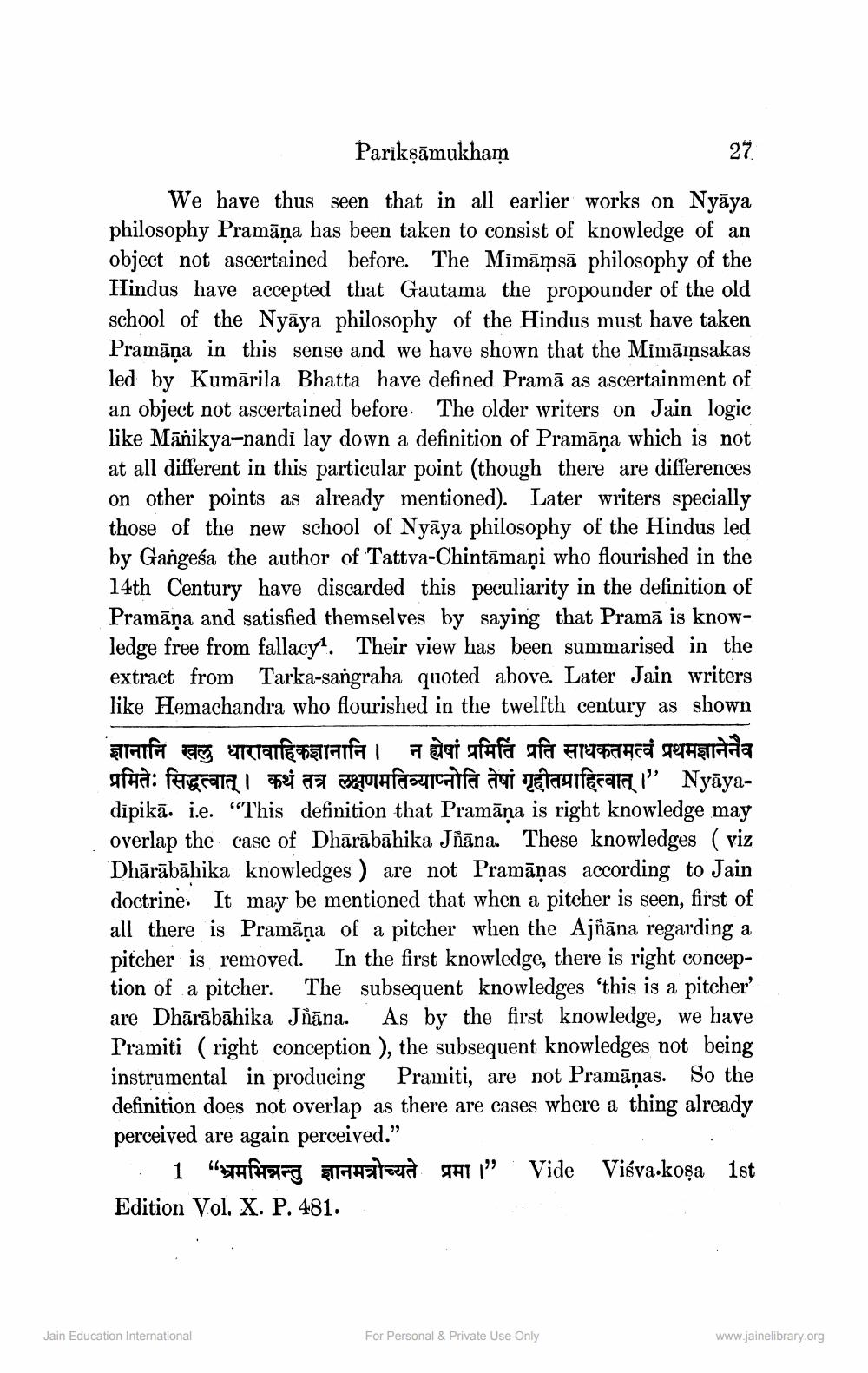________________
Parikṣāmukham
27
We have thus seen that in all earlier works on Nyāya philosophy Pramāņa has been taken to consist of knowledge of an object not ascertained before. The Mimāmsā philosophy of the Hindus have accepted that Gautama the propounder of the old school of the Nyaya philosophy of the Hindus must have taken Pramana in this sense and we have shown that the Mimamsakas led by Kumarila Bhatta have defined Prama as ascertainment of an object not ascertained before. The older writers on Jain logic like Manikya-nandi lay down a definition of Pramāņa which is not at all different in this particular point (though there are differences on other points as already mentioned). Later writers specially those of the new school of Nyaya philosophy of the Hindus led by Gangesa the author of Tattva-Chintamani who flourished in the 14th Century have discarded this peculiarity in the definition of Pramana and satisfied themselves by saying that Prama is knowledge free from fallacy1. Their view has been summarised in the extract from Tarka-sangraha quoted above. Later Jain writers like Hemachandra who flourished in the twelfth century as shown ज्ञानानि खलु धारावाहिकज्ञानानि । न ह्येषां प्रमितिं प्रति साधकतमत्वं प्रथमज्ञानेनैव प्रमितेः सिद्धत्वात् । कथं तत्र लक्षणमतिव्याप्नोति तेषां गृहीतग्राहित्वात् । " Nyāyadipikā. ie. "This definition that Pramāņa is right knowledge may overlap the case of Dhārābāhika Jñana. These knowledges (viz Dhārābāhika knowledges) are not Pramāņas according to Jain doctrine. It may be mentioned that when a pitcher is seen, first of all there is Pramāņa of a pitcher when the Ajñāna regarding a pitcher is removed. In the first knowledge, there is right conception of a pitcher. The subsequent knowledges 'this is a pitcher' are Dhārābāhika Jñāna. As by the first knowledge, we have Pramiti (right conception), the subsequent knowledges not being instrumental in producing Pramiti, are not Pramāņas. So the definition does not overlap as there are cases where a thing already perceived are again perceived."
1 " भ्रमभिन्नन्तु ज्ञानमत्रोच्यते प्रमा ।" Vide Viśva koşa 1st Edition Vol. X. P. 481.
Jain Education International
For Personal & Private Use Only
www.jainelibrary.org




